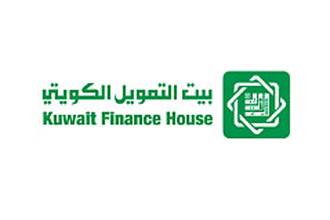LOC17:58
14:58 GMT
 Kuwait Finance House
Kuwait Finance House
KUWAIT, Jan 20 (KUNA) -- The European Central Bank (ECB) is expected to
continue its tough policy after the latest drop in the rates of interest on
the euro, as a result of the uncertainty and looming economic risks that pose
a threat to most countries in the euro region, a specialized economic report
showed Friday.
The report, issued by Kuwait Finance House's Research Department, pointed
out that further drops are expected on the interest rate of the euro, where
the ECB is expected to resort to a further shedding of interest rates by 25
points during the first quarter of this year.
It also forecasts that the euro zone will enter total recession this year
in light of the current unfavorable conditions that were topped by Standard
Poor's downgrading of sovereign debts for European countries.
As widely expected, the European Central Bank (ECB) left its key interest
rate on hold at 1.00 percent during its council meeting on 12 January 2012-
the first monetary policy decision of the New Year. The Bank also left the
rate of the deposit facility unchanged at 0.25 percent, just as the rate on
the marginal lending facility remained at 1.75 percent.
The report added that no further non-conventional measures had been
announced this time around. We believe that the bank would to see the
effectiveness of the previous measures to funding in the banking system before
making any moves.
During the last meeting in December 2011, the bank decided to implement
several measures, including lowering the banks' reserve ratio to 1.00 percent
and relaxing collateral conditions, in order to enhance credit lending and
liquidity in the money market.
The report cited recent statements by ECB President Mario Draghi expressing
a slightly upbeat view of the euro-zone economy. Business activity was seen
stabilizing, with lead indicators had stopped falling of late.
"Financial conditions have improved recently, on the back of the
significant liquidity injection through the ECB's three-year longer term
refinancing operations (LTROs) in December last year. This 'LTRO' offering was
perceived by the ECB to have had a 'substantial' positive effect on easing
credit conditions and boosting confidence in the financial system. News showed
that there were a net increase in liquidity of around EUR 200bln distributed
among the over 500 participated banks. The ECB's decision to offer banks
unlimited three-year loans and the central bank's purchase of sovereign bonds
helped balloon the central bank's balance sheet to a record EUR2.73tln in
December 2011.
"Markit's Eurozone PMI Manufacturing and Services Indices rose for the
second month running in December 2011, providing encouraging signs that the
widely-watched indicator may have bottomed out.
"The economy also received a boost from a weaker euro. The euro's 10
percent drop against the dollar since late October 2011, giving advantage to
trade activities. For instance, German's merchandise exports rose by 8.3
percent y-o-y to EUR94.9bln in November 2011, accelerating from 3.8 percent
growth in October 2011. Shipments to the EU rose by 8.4 percent year on year
to EUR56bln, with sales to non-EU countries up 8.2 percent to EUR38.9bln.
"Meanwhile, borrowing costs have also eased. Ten-year bond yields fell
sharply, down to 5.17 percent in Spain and 6.64 percent in Italy, taking
borrowing costs down below the 7 percent level that is widely considered to be
unsustainably expensive in the long-run for economies such as these with low
growth potential. Italy sold EUR9bln of bills on 28 December 2011 at about
half the rate of the previous sale in November 2011 and Belgium raised more
money than planned at a 3 January 2012 debt sale.
Despite the optimistic view, the ECB kept its options open for additional
rate cuts if the economic downturn escalates. Indeed, officials "stand ready
to act" amid continued high levels of uncertainty and "substantial" downside
risks to activity. Our forecast envisages a 25 bps cut by the end of 1Q12, but
the ECB may choose to keep its powder dry if economic data and financial
conditions continue to stabilize. Further support is certainly in the pipeline
before the end of the quarter with the second 3-year LTRO scheduled on 28
February 2012. The take up is expected to be substantial, especially since by
then measures to increase the availability of collateral should have been
clarified allowing national central banks to accept additional credit claims.
The report noted that the euro-area looks to enter a recession in 2012 (GDP
forecast:-0.4 percent to 1.0 percent) as the sovereign debt crisis has led to
tight fiscal policy, bank deleveraging and a significant drop in private
sector confidence.
Indeed, debt crisis has intensified as Greece proved unable to follow on
fiscal adjustments, and the decision to initiate debt restructuring in July
2011, against the backdrop of a central bank determined not to appear to be
financing government deficits, has turned the crisis systemic.
Although there has been a notable improvement in bank funding markets in
early month of January 2012, and sovereigns have issued debt at much lower
borrowing costs than in December 2011, underlying stresses appear to be only
contained rather than resolved.
This is underscored by recent Standard Poor's (SP) sovereign debt
downgrades to several European countries along with the announced stall in
Greek private sector initiative (PSI) negotiations. France and eight other
euro-zone countries suffered ratings downgrades on their sovereign debt on 12
January 2012, sparking renewed global worries over Europe's ability to bail
itself out of financial crisis. SP stripped triple-A ratings from France and
Austria and downgraded seven others, including Spain, Italy and Portugal. It
retained the triple-A rating on Europe's No. 1 economy, Germany. SP, which in
December placed 15 of the 17 euro-zone countries on watch for possible
downgrades, said it had decided to lower the debt ratings of nine of them
because it felt the currency bloc has so far failed to take adequate action.
(end)
fnk.rda.ibi
KUNA 201758 Jan 12NNNN